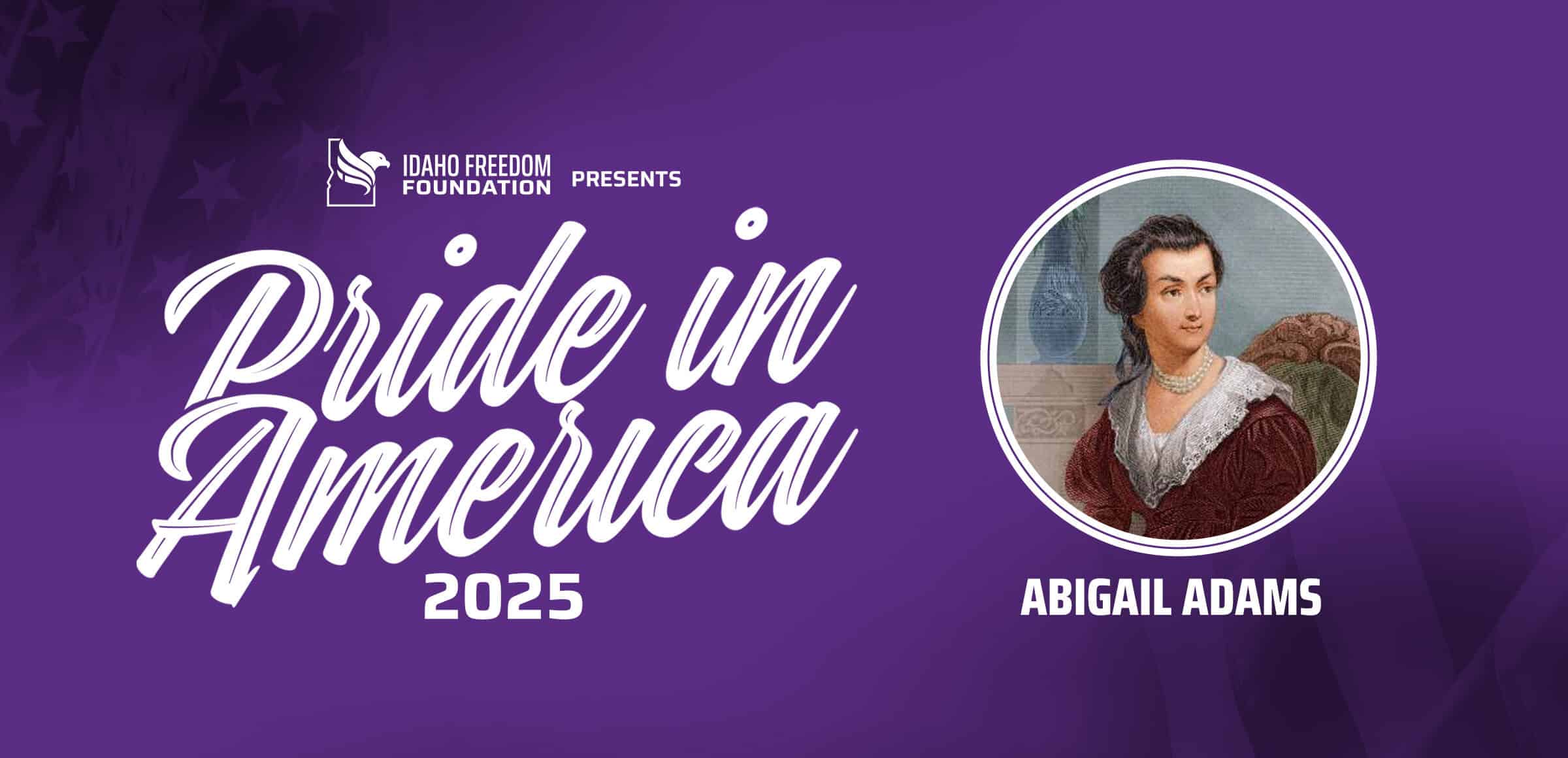


In celebration of our national heritage, we continue our Pride in America series by honoring one of the United States’ Founding Mothers, Abigail Adams.
Born in 1744 in Massachusetts to a Congregational reverend and his wife, Abigail Smith was known in her early years for generously tending the poor and sick. She was not formally educated but was a ravenous reader, and she easily mastered subjects such as law, philosophy, mathematics, science, and literature.
At 20 years old, she married a recent Harvard graduate, John Adams, and the two had six children; only four of whom lived to adulthood. Over the course of their marriage, her husband traveled a great deal for his legal career, diplomatic missions, and work at the First Continental Congress, leaving Abigail to assume all of the household responsibilities. She oversaw their land and tenants, managed all of their finances and business affairs, and made investments, all while also raising and educating their children.
Due to the large amount of time they spent apart, the two maintained detailed and regular correspondence, providing us with a robust picture of the Revolutionary Era, the First Continental Congress, and their lives leading up to John’s presidency from 1797 to 1801. Between 1762 and 1801, the two shared more than 1,100 letters.
They discussed policy, diplomacy, public opinion, war, culture, law, and day-to-day life. Their conversations revealed a love and affection between each other as well as an intellectual bond. Abigail is famously remembered for her 1776 letter to John while he served in the First Continental Congress in Philadelphia, in which she reminded him to “Remember the Ladies [sic], and be more generous and favourable [sic] to them than your ancestors.”
Though she was in no way an early feminist, as many liberal historians suggest, Abigail advocated for better education, equal protection under the law, and property rights for women. Throughout John’s career, particularly throughout his presidency, Abigail became his most trusted confidant and advisor. After being elected president, John wrote to Abigail, “I never wanted your Advice [sic] and assistance more in my Life [sic].”
She was known to be outspoken in matters of policy and law, and she famously defended her husband’s policies while he was in office at dinner parties and soirees with diplomats, statesmen, and wealthy elites present. She kept close contact with political leaders, including the Madisons and Thomas Jefferson (even after an ugly presidential election), and she worked diligently to advance her son John Quincy Adams’s career in politics.
Though she never held any formal power, Abigail’s writings and opinions greatly contributed to the Founding and early American political culture, primarily through her husband. Perhaps her greatest contribution, which inspired women such as Phyllis Schlafly, was her idea of Republican Motherhood. She believed women played a critical role in the preservation of the Republic by raising and teaching an active citizenry. This concept laid the groundwork for women’s education and voting rights in the 19th and 20th centuries.



